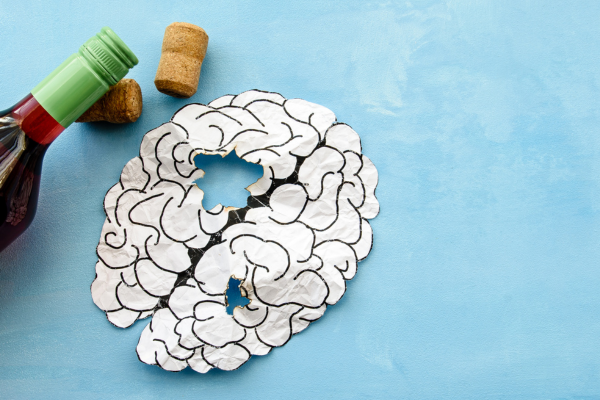Alcoholism, a chronic and often progressive disease, affects millions of individuals worldwide. Not only does it harm physical health, but it also exerts a profound impact on mental health. The destructive relationship between alcoholism and mental well-being is an urgent concern that deserves greater attention and understanding. This article aims to explore the interconnectedness between alcoholism and mental health, shedding light on the adverse consequences of this widespread issue.
The Vicious Cycle of Alcoholism and Mental Health
Alcoholism and mental health often coexist, leading to a vicious cycle that intensifies both conditions. Individuals struggling with mental health issues may resort to alcohol as a coping mechanism, seeking temporary relief from anxiety, depression, or other emotional challenges. Excessive alcohol consumption exacerbates these mental health problems, eventually trapping the individual in a self-destructive loop.
Anxiety and Depression
Studies show a strong correlation between alcoholism and mood disorders. Alcohol acts as a depressant on the central nervous system, initially providing a fleeting sense of relaxation. However, chronic alcohol abuse can disrupt the balance of neurotransmitters in the brain, leading to increased feelings of sadness, an escalation of anxiety levels, panic attacks and social withdrawal. Social isolation deepens feelings of loneliness. The lack of social interaction and meaningful relationships further hinders recovery.
Cognitive Impairment and Memory Issues
Prolonged alcohol abuse damages the brain’s structure and disrupts communication between brain cells, impairing cognitive function. This results in memory lapses, blackouts, episodic confusion, slower reaction times, and difficulty with problem-solving and decision-making. A lengthy period of excessive alcohol intake with resultant brain damage increases the risk of one developing dementia in later years.
Sleep Disturbances
Alcohol disrupts the sleep cycle, leading to poor-quality sleep and insomnia. Sleep plays a crucial role in maintaining mental health, and chronic sleep disturbances can worsen existing mental health issues or trigger new ones. Fatigue, irritability, and difficulty concentrating are common consequences of inadequate sleep, which can hinder an individual’s ability to cope with life stressors.
Seeking Help and Breaking the Cycle
As mentioned above, alcohol use disorder commonly co-occurs together with mood disorders and cognitive impairment, precipitating, exacerbating and perpetuating each other. The complex interplay between both mental health disorders requires a multidisciplinary team approach in effectively treating the afflicted individual.
A biological-psychological-social approach is adopted to optimise the individual’s functioning. Besides medications to aid in alcohol reduction and treat mood disturbances, often counselling and therapy is needed as well for cognitive restructuring. Additionally, support from loved ones and involvement in support groups can provide a crucial lifeline for individuals seeking to overcome alcoholism and regain control of their mental well-being.
The impact of alcoholism on mental health is a complex and multifaceted issue that affects millions of lives worldwide. It’s crucial to recognise that alcoholism and mental health challenges are interconnected and mutually reinforce each other, creating a destructive cycle that demands immediate attention and understanding.
By fostering greater awareness, promoting empathy, and investing in comprehensive treatment approaches, we can empower individuals struggling with alcoholism and mental health issues to break free from the cycle, regain control of their lives, and move towards a healthier and happier future. Together, as a society, we must work to remove the stigma surrounding mental health and addiction, ensuring that those in need receive the support and care they deserve.

